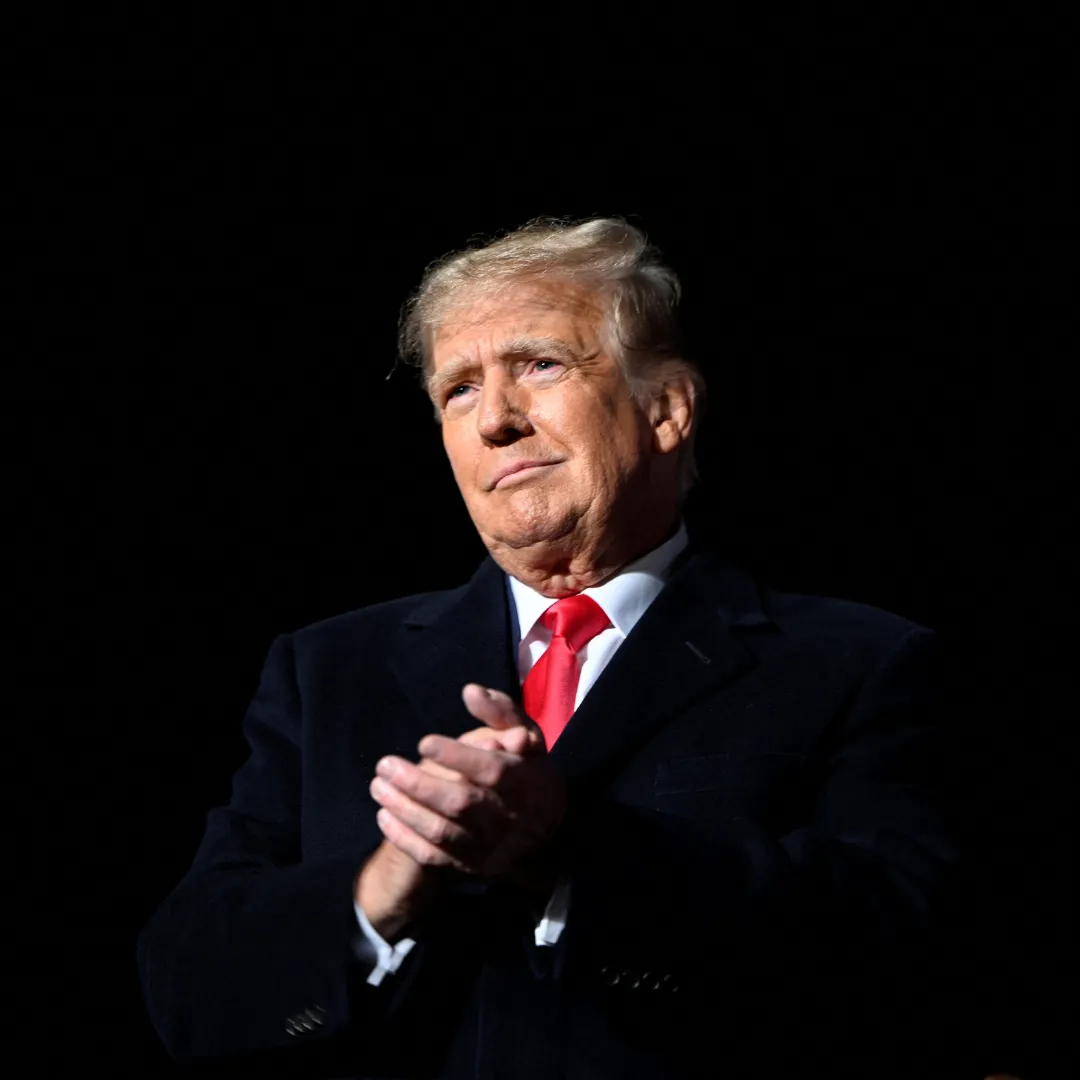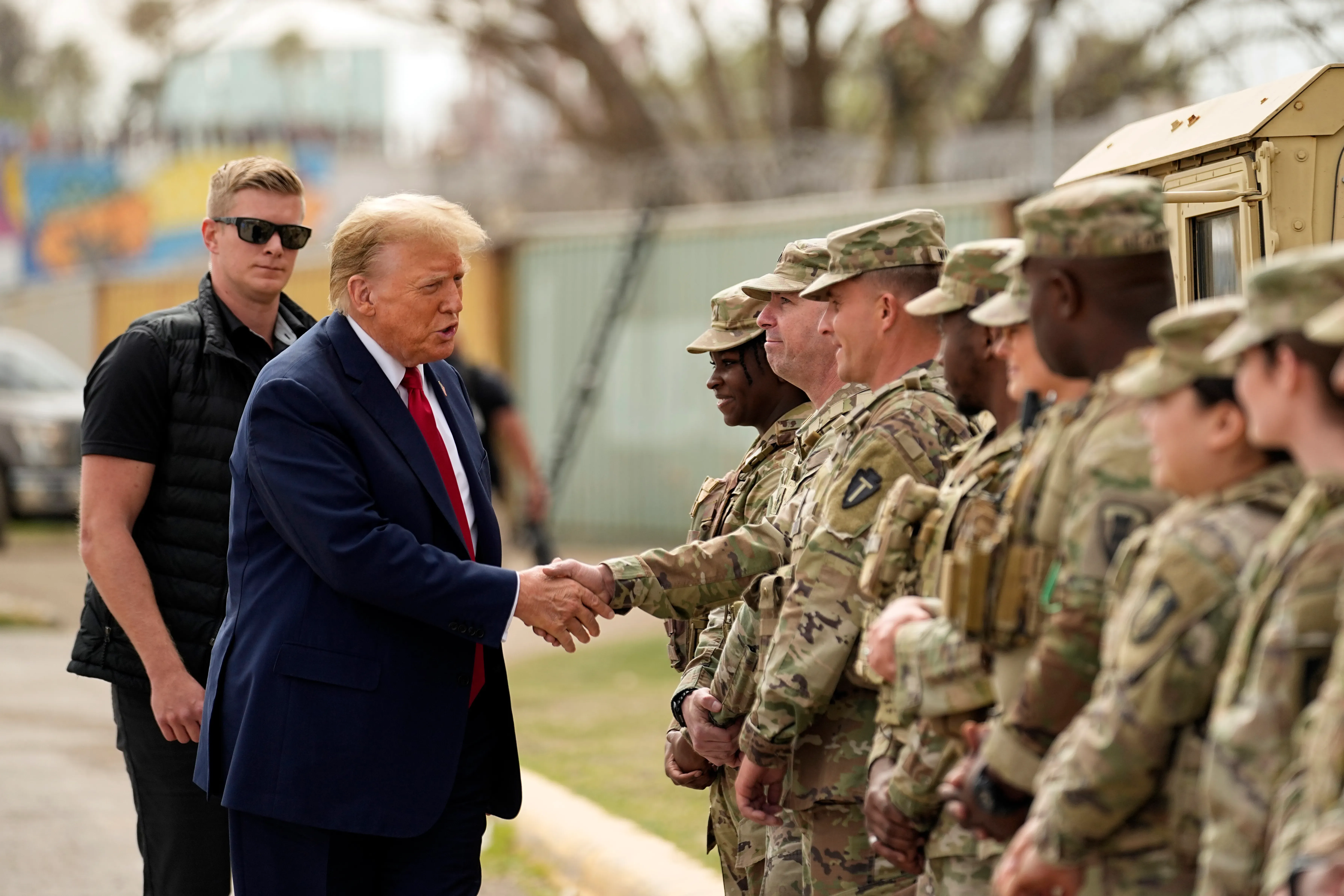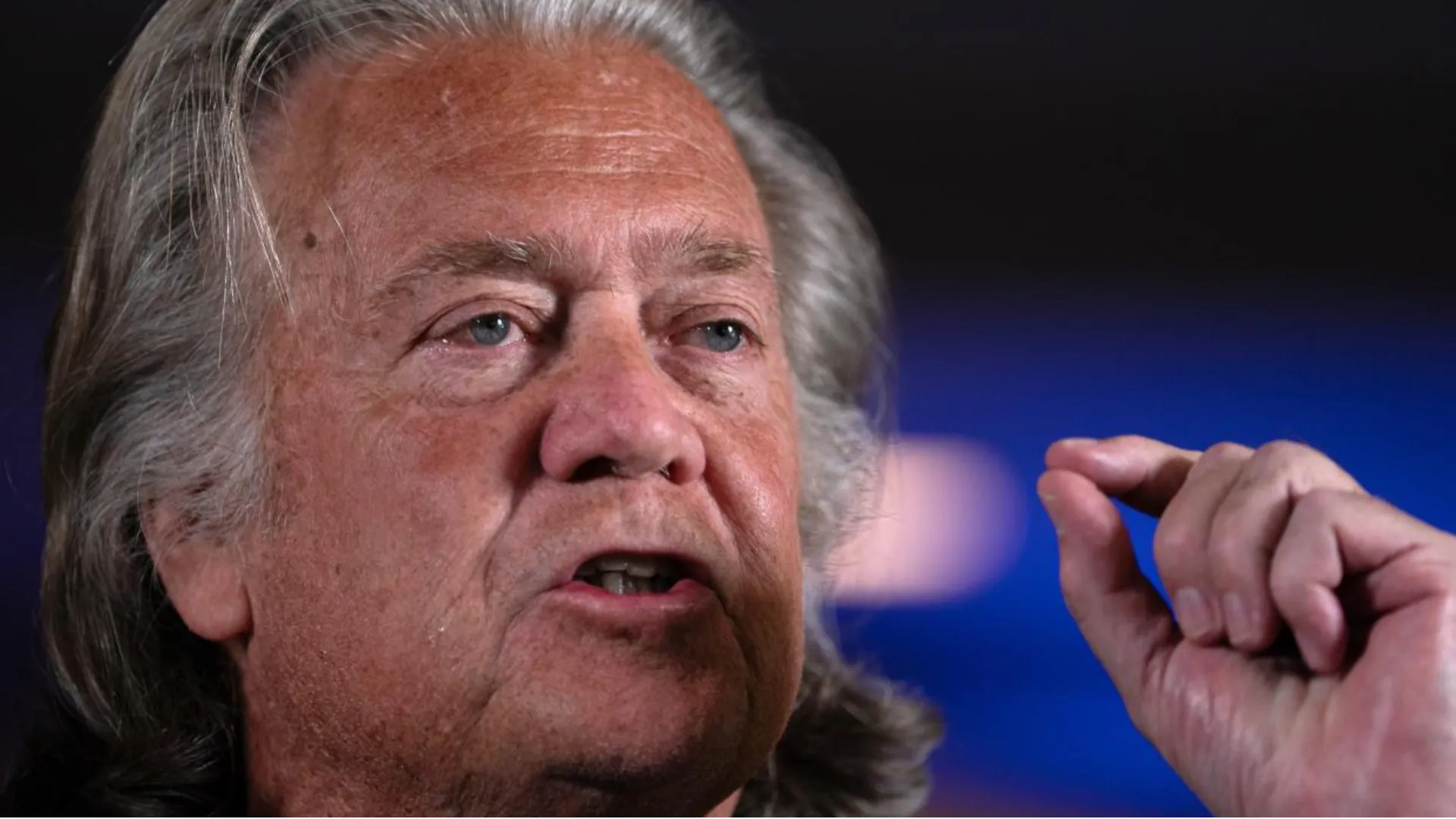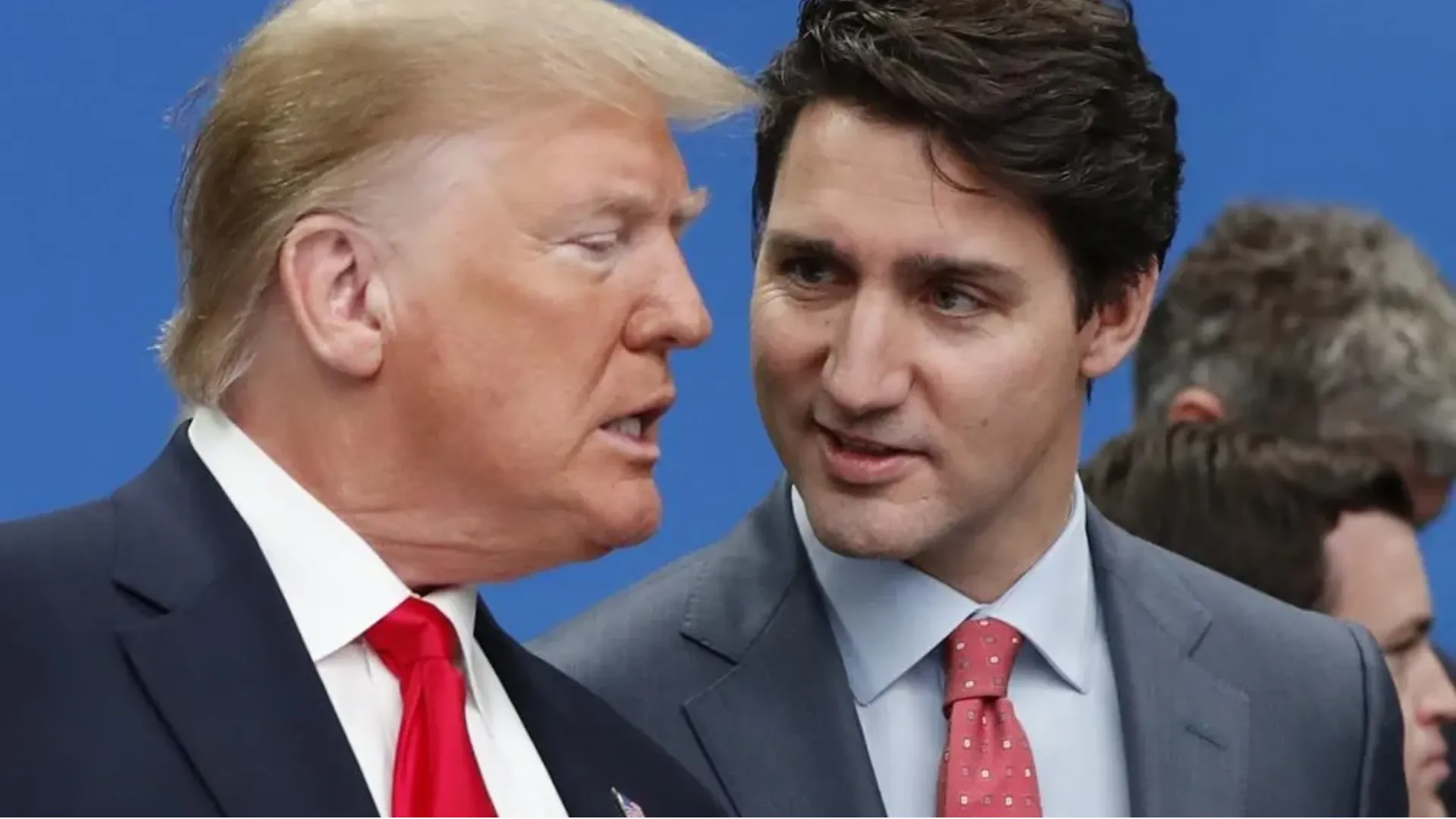As the American economy reels from the fallout of a tariff storm unleashed by President Donald Trump, the president himself appeared unfazed — swinging golf clubs in Florida while Wall Street burned.
Markets plunged. Retirement accounts shrank. Global leaders scrambled for clarity. And in the middle of it all, Trump posted a cheerful video of himself golfing at one of his own resorts, telling Americans to “HANG TOUGH.”
For millions of Americans watching their financial futures slip away, the image felt like a gut punch.
For Trump’s critics — and increasingly, for frustrated independents — it was the embodiment of a growing sentiment: the former president is treating the U.S. economy like a personal plaything, with no regard for the consequences, and benefiting from a political double standard that would implode any Democrat who dared to do the same.
Trump’s recent tariff blitz blindsided global markets. With no structured plan, no coordination, and no economic rationale offered, the administration enacted sweeping trade penalties on dozens of countries.
Markets responded predictably: panic. The S&P 500 dropped. The Nasdaq collapsed. Bonds wobbled. Oil prices spiked. For two consecutive days, the U.S. economy appeared to be in free fall.
And yet, in the middle of this economic storm, the commander in chief was posting swing videos from his luxury golf course, chatting with billionaire allies, and letting Americans know — via Truth Social — that “everything’s fine.”
Economists, however, disagreed.
Reports emerged of retirement accounts losing thousands in value overnight. Business owners warned of sudden cost increases on imported goods. Trade partners retaliated or threatened to.
And the financial press struggled to interpret the message from Washington — in part because the administration itself seemed to be improvising in real time.
One business reporter summed up the tariff plan by saying, “The president kinda made this up as he went along.”
That line, repeated by economists across media outlets, has since become a chilling encapsulation of Trump’s economic strategy — if it can even be called one.
The optics were particularly devastating. As the country slid into financial anxiety, Trump didn’t gather with economic advisors, hold press briefings, or address the nation. Instead, he golfed. And not discreetly — he publicized it, with video clips of himself teeing off at his own branded course.
The scene was immediately likened to “let-them-eat-cake” indifference. Satirists joked they had nothing left to say — reality had outpaced parody.
But it wasn’t just the golf. Trump reportedly earned revenue over the weekend as donors and friends attended events at his resort. Critics noted that while the public faced economic pain, the president appeared to be personally profiting from the distraction.
And amid all this, he instructed Americans to “hang tough,” offering no details, no clarity, and no solutions.
The central outrage isn’t only what Trump did — it’s how his allies, and much of the media, are tolerating it.
Imagine, critics ask, if President Joe Biden had slapped sudden tariffs on U.S. allies, tanked the stock market for two days, then jetted off for a golf weekend at his own luxury property while ignoring panicked investors.
If Biden had posted a video of himself putting on the green while Wall Street burned, would Fox News have urged “patience”? Would Republican lawmakers call for calm?
The answer, observers argue, is obvious.
In this hypothetical, GOP leaders would have already drawn up articles of impeachment. Conservative pundits would declare economic war. And Fox News would run wall-to-wall coverage accusing Biden of insanity, corruption, and treason.
And yet, when Trump does it, those same figures offer silence — or worse, applause.
The hypocrisy is not subtle. Trump’s Treasury Secretary — a billionaire with questionable public ties — appeared on TV and brushed off concerns that Americans nearing retirement are losing their savings due to the market chaos. His message: people should stop worrying.
For a political movement that has spent the last decade branding itself as the party of working Americans, fiscal discipline, and economic prosperity, the silence now is deafening.
No Republican lawmaker has meaningfully rebuked Trump’s tariffs. No conservative media outlet has launched investigative series into potential insider trading or self-dealing. No public apology has been offered to the American people.
This selective outrage has become a feature of Trump-era politics. As long as the chaos benefits Republicans politically — or doesn’t hurt them at the ballot box — it is tolerated. Explained away. Dismissed.
But ordinary Americans are paying the price.
From retirees watching their 401(k)s shrink, to small business owners bracing for supply chain costs, the impact is real and immediate. In states where economic margins were already thin, Trump's unpredictable tariffs are not simply a policy error — they are a financial wrecking ball.
Trump’s supporters, meanwhile, continue to celebrate his “tough stance” on trade. But few can explain what the tariffs are meant to achieve. There is no clear goal. No timeline. No negotiated pathway. Just pain.
And as the economy bleeds, Trump’s message remains unchanged: “Hang tough.”
The real problem, critics say, isn’t just the policy — it’s the refusal to acknowledge it as a failure. Trump’s allies insist the plan is strategic. That the chaos is “necessary medicine.” That America must suffer now for long-term gain.
But they say this only when it’s their side in power.
When the economy slowed during Democratic administrations, every dip was treated as disaster. Every moment of uncertainty was weaponized. Yet now, with markets in freefall and voters nervous, the silence from the GOP is a political choice.
And that’s the hypocrisy critics can no longer ignore.
What critics are asking for now is not a policy reversal — though many believe that’s needed. What they want is honesty. For Trump and his allies to admit the obvious: that if any Democrat had done even a fraction of what Trump has, the Republican Party would have burned down the Capitol to stop it.
Instead, Americans are left with economic uncertainty, a silent Congress, and a president swinging golf clubs while the system shudders.
As one commentator put it: “You may end up as broke as the rest of us, but at least you’ll be able to tell your kids that, in the end, you were honest.”






